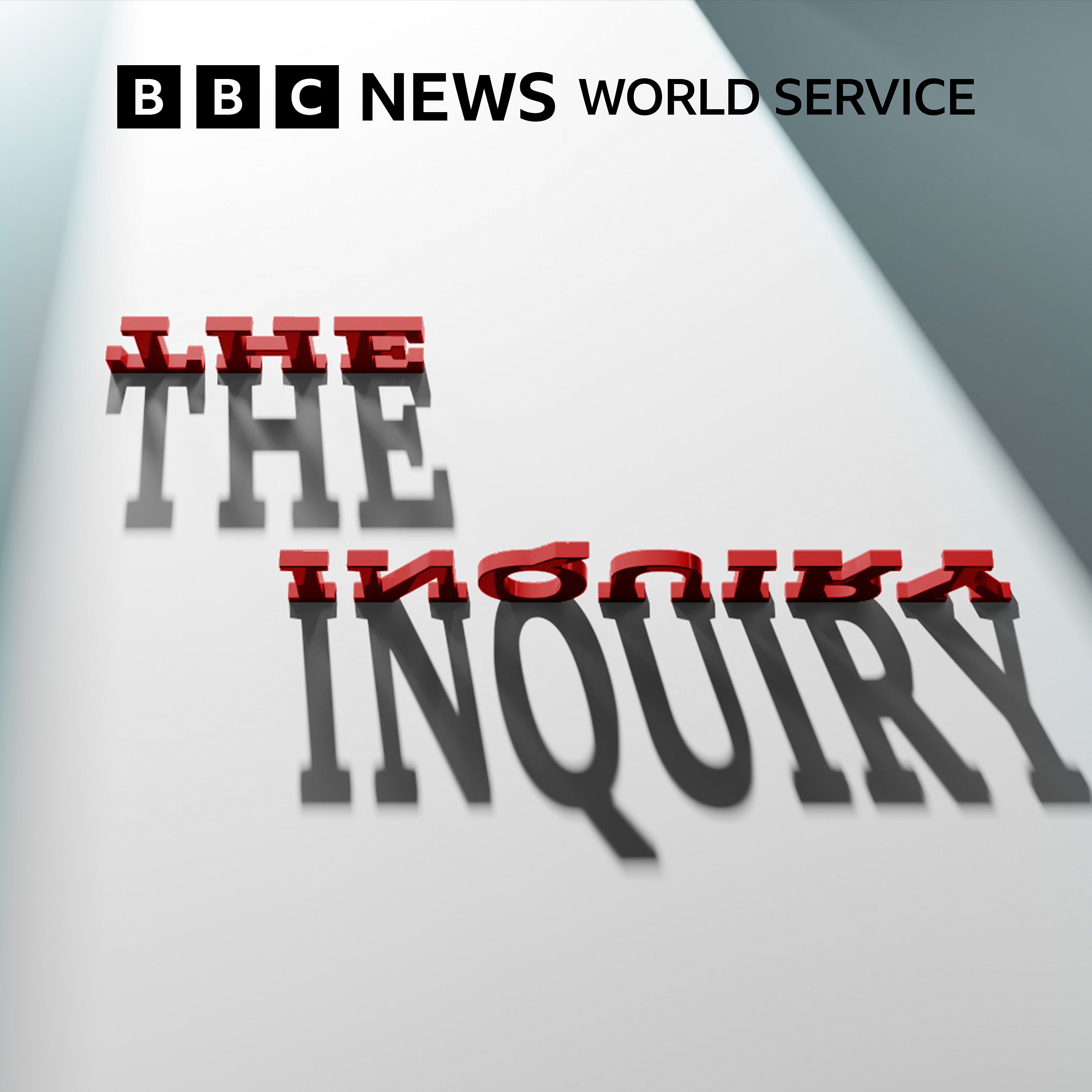

The Inquiry
BBC World Service
The Inquiry gets beyond the headlines to explore the trends, forces and ideas shaping the world.
Episodes
Mentioned books

Oct 26, 2023 • 24min
What can US diplomacy achieve in the Middle East?
David Sanger, White House correspondent, and other experts discuss US diplomacy in the Middle East, focusing on President Biden's response to Israel's terror attack, diplomatic efforts, the US-Israel relationship, and the impact of historical events like the 1967 war. They explore the challenges and potential for peace in the region under the Biden administration.

Oct 19, 2023 • 24min
Is peace in the Arctic melting?
Melting ice in the Arctic is causing geopolitical tensions, with Russia turning to China for cooperation. Climate change affects scientific data and makes disputes harder to resolve. China wants to position itself as a major power in the region. The war in Ukraine disrupts collaboration and data collection. China has interests in the Arctic and aims to establish itself as a polar great power.

Oct 12, 2023 • 24min
Can Europe solve its migrant crisis?
Causes, risks, and challenges of Europe's migrant crisis examined. Discussion on labor shortage and visa solutions. Ethical concerns of skilled migration and temporary visas. Tensions, solutions, and solidarity within the EU explored.

Oct 5, 2023 • 24min
Why can’t Germany build enough homes?
Germany's housing crisis is explored, with high construction costs, falling demand, and regulations causing difficulties for the construction sector. The government's efforts to revive housing construction are discussed. The podcast also examines the housing crisis in Ireland and the mistakes made in social housing provision. The impact of COVID-19 on construction companies and the labor shortage in different countries are highlighted. The challenges and obstacles facing the German housing market are explored, including the post-reunification construction boom and subsequent downturn.

Sep 28, 2023 • 24min
Can China and India fix their relationship?
India's Prime Minister Narendra Modi and China's President Xi Jinping met at the BRICS summit to address border tensions. The episode discusses the history and current state of their relationship, competition in South Asia, infrastructure projects in Latin America and Africa, India's efforts to reduce dependence on China, and the implications for global powers. Despite structural difficulties, Modi and Jinping maintain a good personal relationship, leaving the question of whether China and India can improve their relationship.

Sep 21, 2023 • 24min
Why is life expectancy falling in America?
The podcast explores why life expectancy is falling in America, discussing factors such as the Covid pandemic, gun deaths, drug overdose deaths, and inequality in the healthcare system. Experts highlight the impact of these factors on average life expectancy and the urgent need for solutions. They also delve into the growing epidemic of gun violence, particularly among young people, and the devastating consequences of the opioid epidemic. Additionally, the podcast addresses declining health and mortality rates in America, emphasizing the effects of COVID-19 and diseases like cancer and heart disease.

Sep 14, 2023 • 24min
What’s next for Palestinian leadership?
The Palestinian President Mahmoud Abbas is ageing and his ruling Fatah party is deeply unpopular. There have been protests against him and the Palestinian Authority. Many Palestinians feel the PA has lost legitimacy. There’s no plan for how to choose a successor to Mahmoud Abbas and any candidate is likely to be controversial. There’s a risk that an unpopular replacement may throw the occupied territories into chaos, even violence, and have major implications for the future goals of Palestinian people. Contributors:
Dalia Hatuqa, independent Palestinian journalist.
Khalil Shikaki, Professor of Political Science and director of the Palestinian Center for Policy and Survey Research.
Ahmad Khalidi, political analyst and writer on Palestinian and Middle East political and strategic affairs.
Ines Abdel Razak, executive director of the Palestine Institute for Public Diplomacy.Presenter: Emily Wither
Producer: Louise Clarke
Researcher: Matt Toulson
Editor: Tara McDermott
Sound engineer: Jack Wood(Photo: Palestinians celebrate vote. Credit: Uriel Sinai/Getty Images)

Sep 7, 2023 • 23min
What’s wrong with our guts?
Delving into the gut, the hosts explain the digestive processes and the gut-brain connection. They explore the impact of gut bacteria on anxiety and depression. The use of probiotic and prebiotic supplements for gut health is discussed, emphasizing the importance of scientific evidence and reaching the large intestine.

7 snips
Aug 31, 2023 • 24min
Are we alone in the universe?
Lawmakers in the US explore evidence of extra-terrestrial life, including Tic Tac videos of mysterious objects. They discuss the historical perspective of the UFO phenomenon and the influence of the Cold War and popular culture. Investigative reporter Leslie Kean sheds light on a secret government program studying UFOs. The revelation of the program retrieving non-human materials highlights the importance of scientific investigations. The role of science in studying UFOs is discussed, along with advancements in telescopes and the ethical considerations of detecting extraterrestrial life.

10 snips
Aug 24, 2023 • 24min
Is work from home working?
The podcast explores the effectiveness of remote working, cultural differences in attitudes towards remote work, legal considerations and regulations regarding remote working, challenges faced while working from home, the importance of mental health, and the potential of hybrid work environments.


